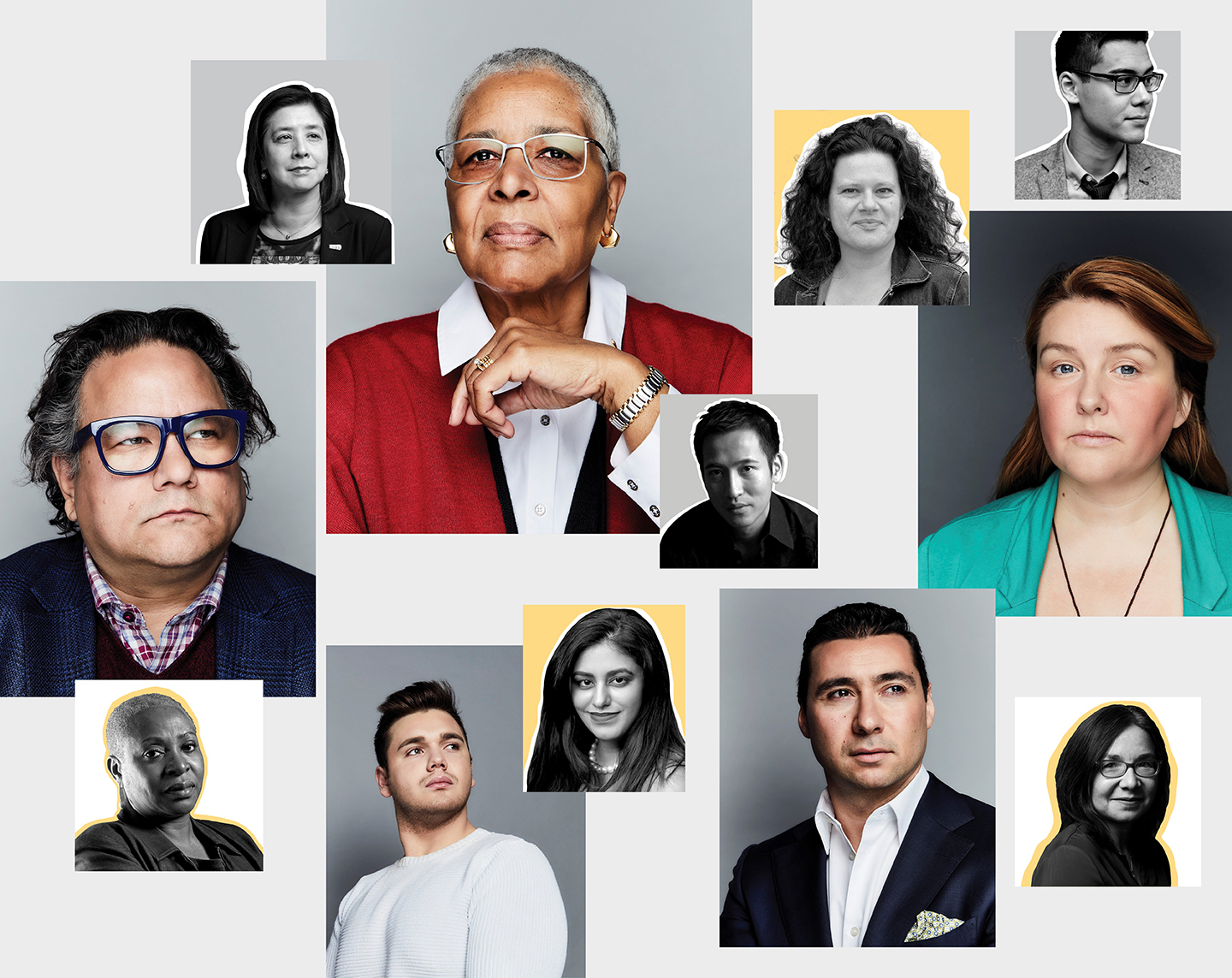
Taking a Stand
As these alumni have discovered, it takes courage to speak up for what you believe in Read More
These 12 grads pursue the truth in important and different ways. Some have criticized government policy, others have pushed for changes at their workplace or questioned a prevailing view. They may not always have won people to their perspective, but they epitomize the expression, “You will never lose if you fight for the truth.”
The Policy-maker
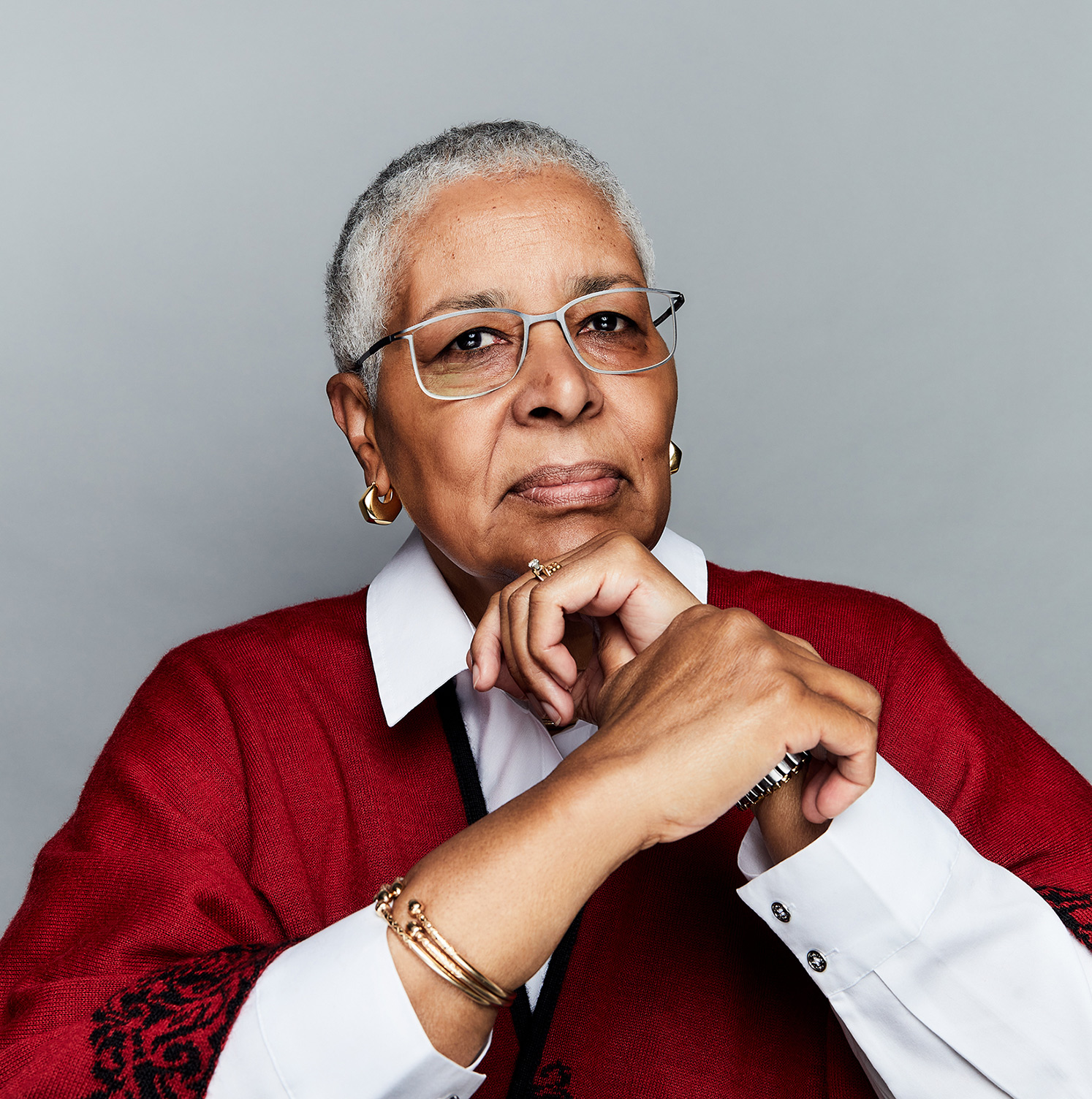
Mary Anne Chambers (BA 1988 UTSC) served in the Ontario Legislative Assembly from 2003 to 2007. She supports the Imani Academic Mentorship Program at UTSC, which aims to inspire Black students in grades 7 to 12 to pursue post-secondary education.
“There is a tendency to think that because we mean well, we will do well. But how we define ‘meaning well’ is influenced by what we understand to be true – and this is shaped by our experiences, our social circles, our work and, crucially, whom we listen to.
Decision-makers need to appreciate how public policy will affect different communities and individuals. We can do this through a willingness to listen to as many different voices as we can – from the broadest possible spectrum of society. Only then can we get the full ‘truth’ of the potential impact of our decisions.”
The real downside of privilege is that we get a narrow view of life
The Medical Officer
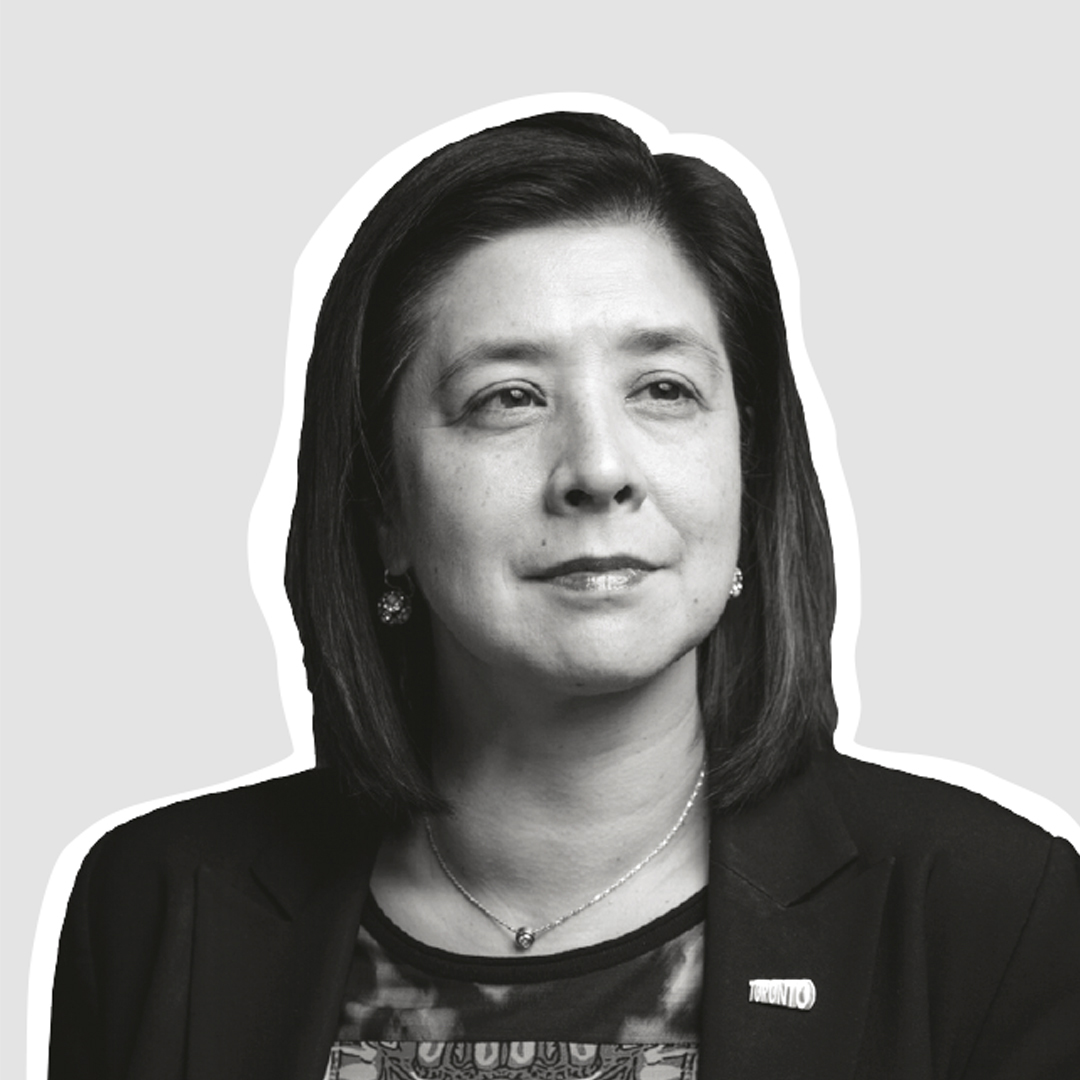
In recent weeks, many Torontonians have become familiar with Dr. Eileen de Villa (MHSc 1994, MD 1998), the city’s medical officer of health, who is holding daily public briefings about the pandemic. She answered the questions below in late March.
What “truth” do you feel you most need to communicate to Torontonians right now?
We all have a responsibility to protect ourselves, our friends, our families and our communities from the spread of COVID-19. Toronto still has the opportunity to slow this virus spread, but we need to work together. We all need to practice physical distancing and stay home if you can and only leave if you have to. People returning from travel from anywhere outside of Canada, including the United States, need to stay home, even if they don’t have symptoms of illness. Staying home not only protects you from this virus spread, it also protects our city’s most vulnerable residents: people who are elderly and those with a chronic health condition. Evidence shows these groups are more likely to be severely affected by COVID-19.
How do you combat misinformation about the pandemic?
We provide credible, up-to-date, evidence-based information to the public as facts. This ensures that people are aware of the changing environment and of the latest recommendations from local, provincial, and federal governments and health officials. Toronto Public Health is constantly updating its website, doing daily media briefings and responding to the public through its hotline and on social media.
The Storyteller
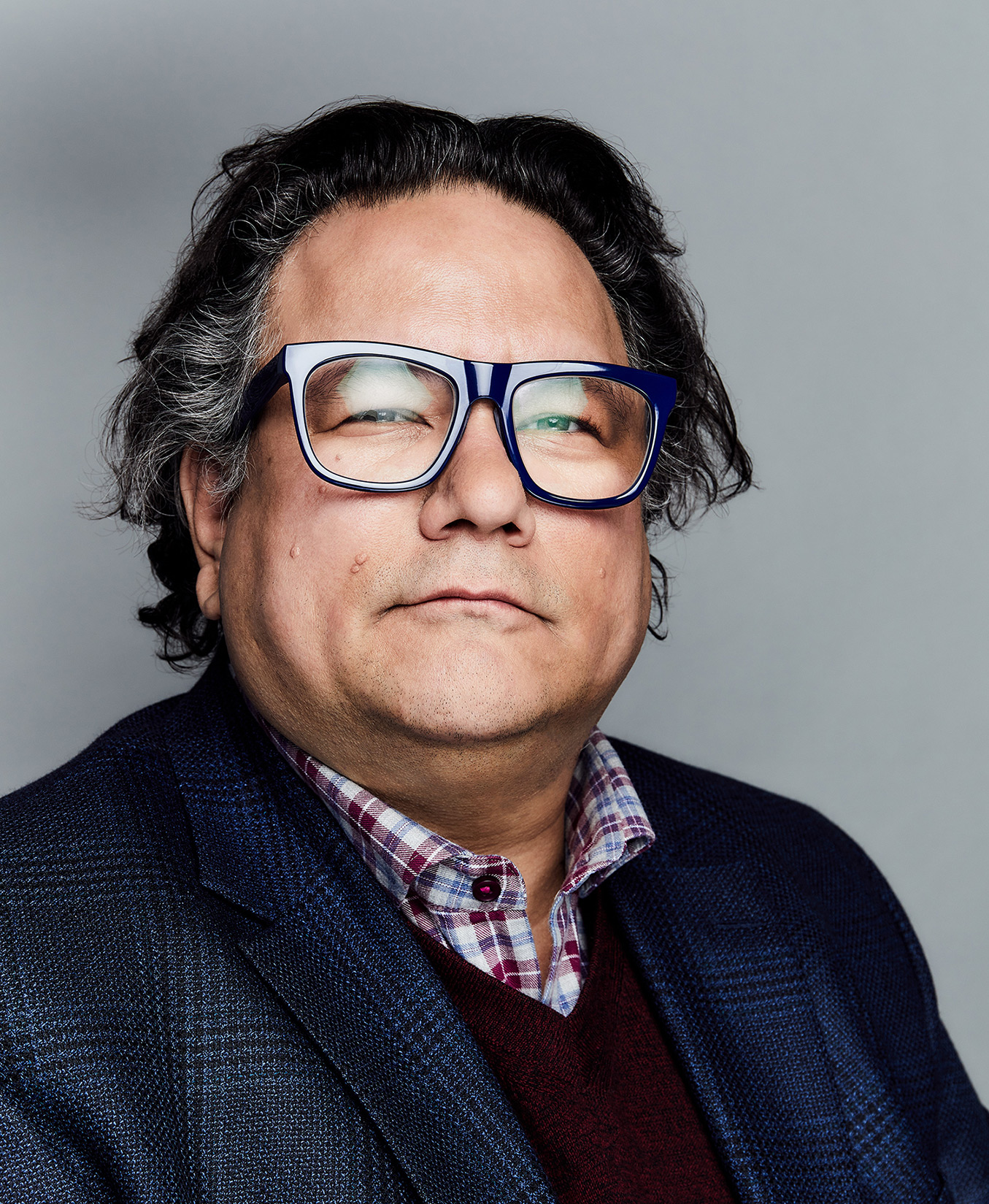
Jesse Wente (BA 1996 Innis), who is a member of the Serpent River First Nation, talked to us about the recent Wet’suwet’en protests and the truth of Indigenous Peoples’ experience in Canada. He is the executive director of the Indigenous Screen Office in Toronto, which supports and develops Indigenous storytellers.
“Much, if not almost all, of what we now call Canada is actually not Canada because the original nations on this land never gave up the right to govern themselves. This is not the truth that most Canadians have been taught, and it’s not the truth that most Canadians believe. But it’s a universal truth for Indigenous Peoples here on Turtle Island in 2020. Acknowledgment and understanding of this is the key to moving past it. It will require a fundamental rethink and reimagining of what Canada is as a country.
Canada could one day look a lot like what my ancestors envisioned
Canada is not the air; it’s not a constant. It is not beyond our will to have it be something different. We’ve seen a huge shift – even in the last five years – in what is being taught in schools about Indigenous Peoples. I think this is already having a very real effect and will have an even greater effect in the future. The situation is still not perfect. But recent signs of solidarity with Indigenous Peoples are incredibly encouraging. It makes me imagine that Canada could one day look a lot like what my ancestors envisioned.”
The Historian
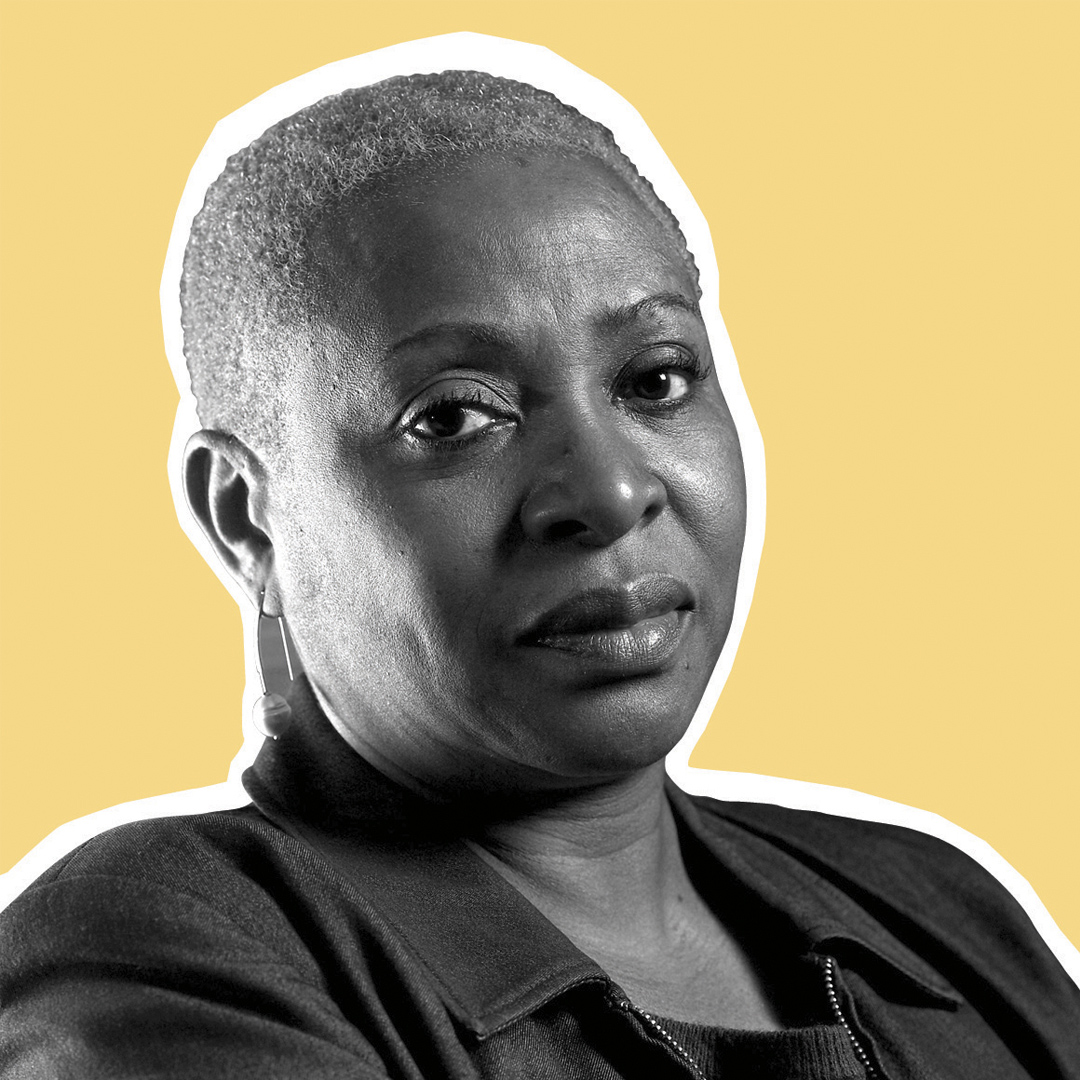
Afua Cooper (BA 1986 New College, MA 1991, PhD 2000) is a professor at Dalhousie University who specializes in African Canadian Studies.
A few years ago, there were several racist incidents at Dalhousie University directed at Black and Muslim students. Cooper and other faculty members brought the issue to the president, who launched an official investigation into anti-Black racism at the institution. A major focus was the school’s founder, Lord Dalhousie. “The university was gearing up to commemorate its bicentenary, yet its founder was fundamentally anti-Black,” says Cooper, who led the scholarly probe. “We needed to look back in order to move forward.”
As a historian, Cooper already knew a lot about the Black experience in Atlantic Canada, but a deep dive into archival documents yielded disturbing truths. Dalhousie had tried to deport Black refugees from the War of 1812 to the tropical colonies, even though the British Crown had promised a place for them in Nova Scotia. Dalhousie saw Nova Scotia as a white person’s colony, so he cut the refugees’ rations by more than half – starving them, essentially, so they would leave. “It was a horror story,” says Cooper.
Cooper’s three-year investigation culminated in recommendations to create a more diverse and inclusive campus. For her, the experience also highlighted, yet again, the importance of looking at a historical episode from different points of view to create a fuller version of the “truth.”
The Activist
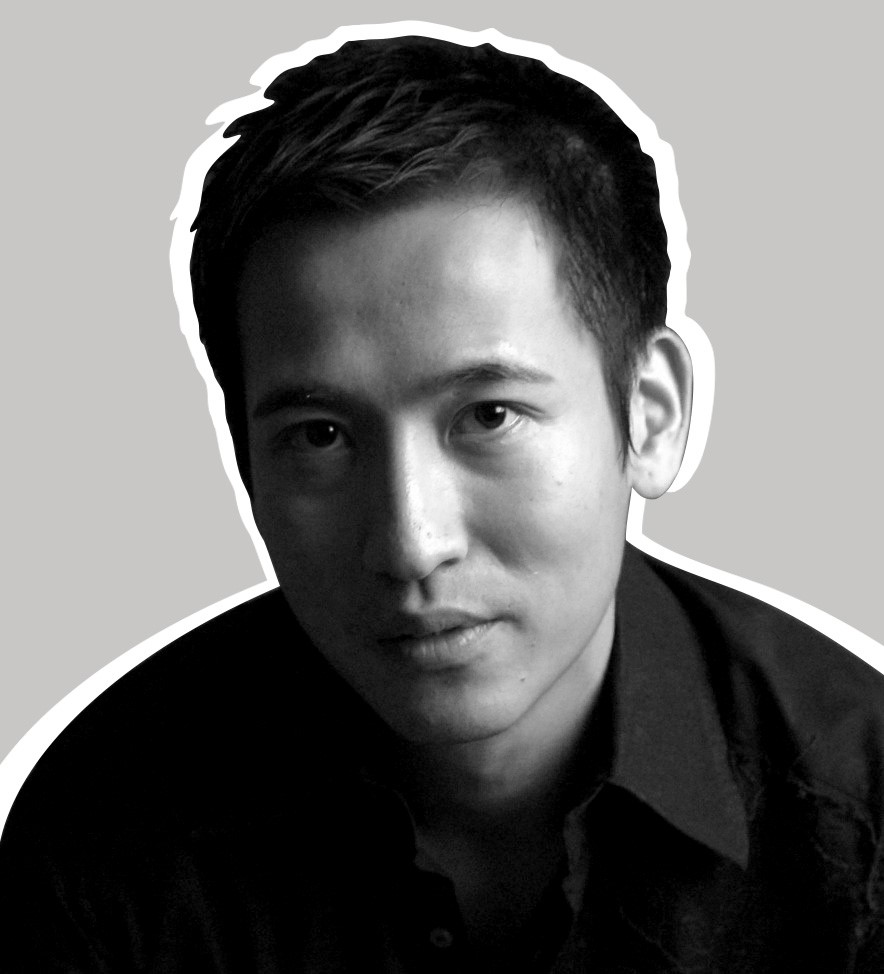
Jason Y. Ng (JD 2001, MBA 2001) participated in the 2014 pro-democracy protests in Hong Kong. His book Umbrellas in Bloom (2015) was the first in English to chronicle the movement. He continues to write about the latest protests in newspaper columns and give lectures on the political situation in Hong Kong.
You describe the pro-democracy movement as a “battle for public opinion.” How is misinformation being used to distort perceptions?
The Chinese state media often doctor video footage of protests or take it out of context to portray protesters as irrational and violent – and as instruments of Western governments. Last fall, Twitter and Facebook shut down more than 5,000 accounts linked to an army of trolls hired by the authorities to chip away at public support for protesters and to harass journalists and pro-democracy politicians and activists. By tightly controlling the “truth,” Chinese authorities hope to suppress the protest movement and stem its spread to the mainland.
How has this affected you?
Anyone who operates in Hong Kong in fields such as literature, journalism and the law as I do shares concerns about censorship. It doesn’t necessarily come through a heavy-handed crackdown but through more subtle forms of coercion and intimidation. For instance, the authorities can shut down a media outlet, inviting public backlash and a legal challenge. Or they can use less obvious tactics, such as pressuring big businesses not to place ads in outlets that are critical of Beijing.
What’s at stake?
Freedom of expression and democracy – they are both highly fragile. We must stand together to defend these values.
This issue of the magazine was being finalized as the university was dealing with a rapidly changing situation involving COVID-19, which led to a number of changes to the print edition. This item appears only online.
The Actor
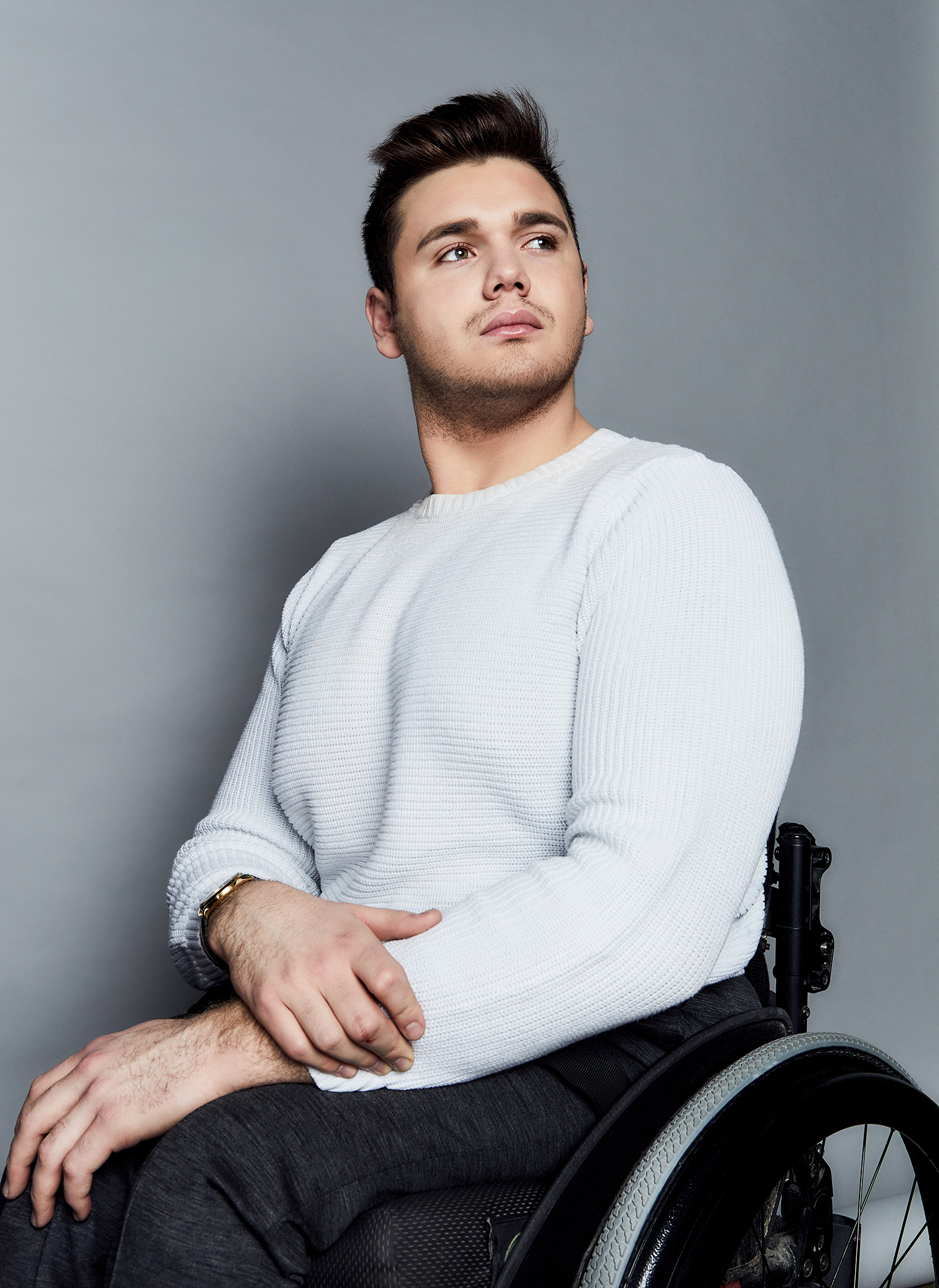
George Alevizos (BA 2019 UTM) has acted in episodes of Star Trek: Discovery and a recent theatre production of A Few Good Men, and guest-starred on Hudson & Rex. He is also part of Holland Bloorview Kids Rehabilitation Hospital’s Dear Everybody Campaign, which focuses on ending stigma for young people with disabilities.
“If casting directors hire somebody with a disability to play a role they are good for instead of it having to be about the fact that they’re in a wheelchair, then that breaks down stigma. It shows: Look, we’re everyday people and we live our lives and we fall in love. Just because we move around differently doesn’t make us less capable.”
The Advocate

Daniela Drandic (BA 2003 UTM) is head of the reproductive rights program at RODA (Parents in Action), Croatia’s largest parent advocacy group. Drandic advocates for respectful and safe maternity care. Below she talks about the group’s #BreakTheSilence campaign.
What is #BreakTheSilence?
In 2014, we invited women to share their stories about how their rights were violated during maternity care. There were thousands of stories all over social media and traditional media in Croatia.
Then, in 2018, a member of parliament stood up in the house and told her story of being tied to a gynecological table and having a surgical miscarriage procedure without anesthetics. The minister of health said to her, ‘This doesn’t happen in our hospitals’ – like she was lying. It reignited our campaign, focusing on one facet of disrespect and harmful practice in maternity care: painful procedures done without anesthetics.
Why aren’t doctors using anesthetics?
The problem is the belief that women can, and should, tolerate pain: If you’re a good mother, you can handle it during childbirth. This is a problem in many countries. We need to rewrite that cultural wiring.
Why is this campaign important?
Women are realizing there is an innate power in these stories – and it’s not just women; it’s any marginalized group that doesn’t have a chance to speak or change things because they’re not in power. Just saying these things is very important. Now, if doctors make excuses about why they don’t want to give anesthetics, women are not accepting that anymore.
The Poet
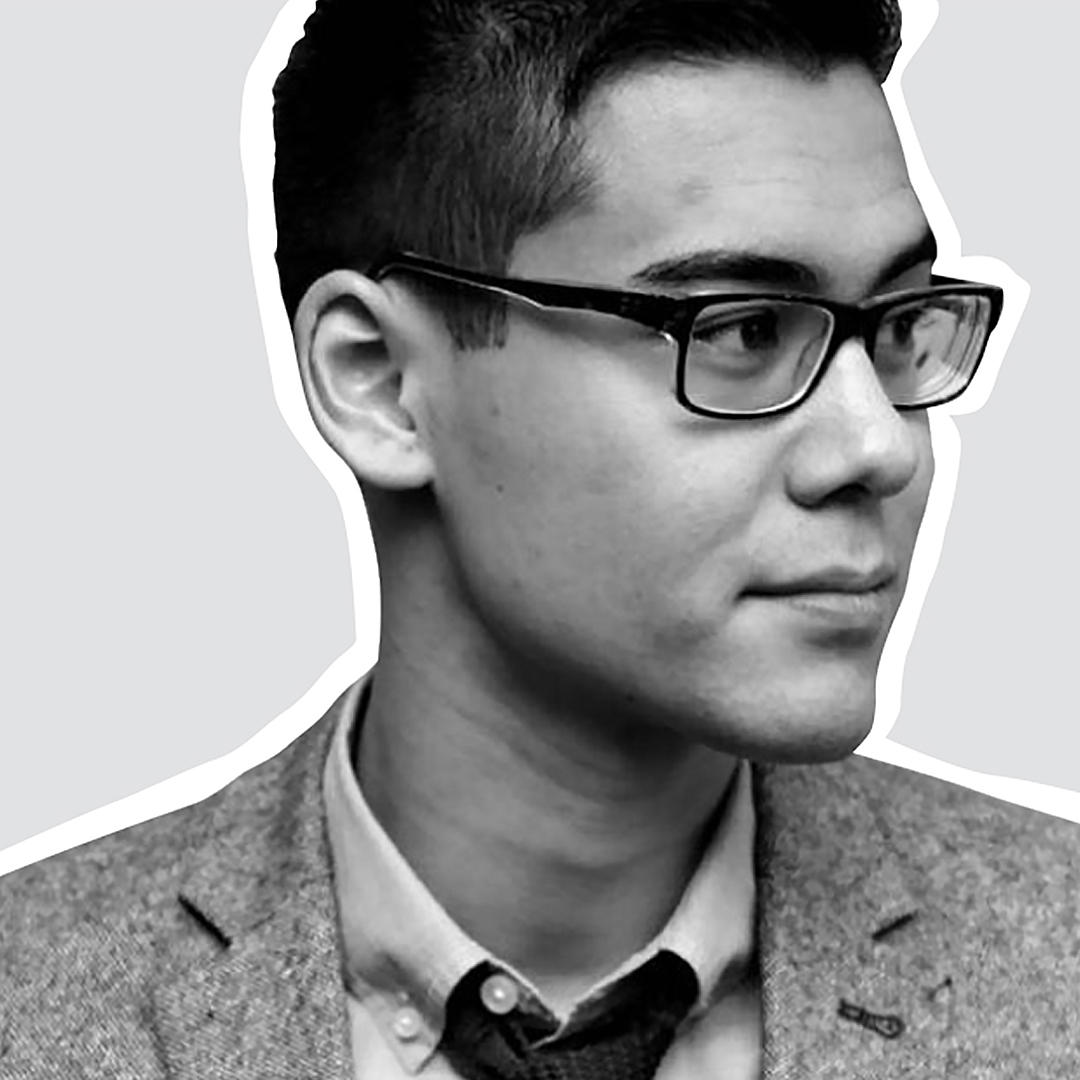
Michael Prior’s maternal grandparents, who were Japanese-Canadian, were subject to internment in British Columbia during the Second World War. Their families’ properties were seized and liquidated to help pay for the construction of internment camps. They were cut off from many opportunities because of their race. This episode looms large in his family mythology, says Prior (MA 2015), and, along with the emotional terrain of his own mixed-race identity, inspired his new book of poetry, Burning Province (McClelland & Stewart). “The sort of truth that poems tell is not the truth of information but the truth of experience,” says Prior. “They ask complicated questions in beautiful and memorable ways.”
Pastoral
Wildroses, horsetails, wind’s cobwebs over water:
summers here since I first learned to swim.
The poplars across the bay shimmer and sway,
reflections creasing under the weather
like molten glass. To think that mirror once meant
both to wonder and look back—the way
I’ve stared into a funhouse pane and seen my mixed face
split then doubled.
North, the rocks are choked with millwort.
South, starlings rustle through the cedars:
brought by a man who spent his life importing
every bird in Shakespeare. New worlds
forever measured by the Old. For every measure,
an equal and opposite erasure. How, over the fire,
the family friend said, Jap, not Japanese.
Excerpted from Burning Province by Michael Prior. Published by McClelland & Stewart. All rights reserved.
The Environmentalist
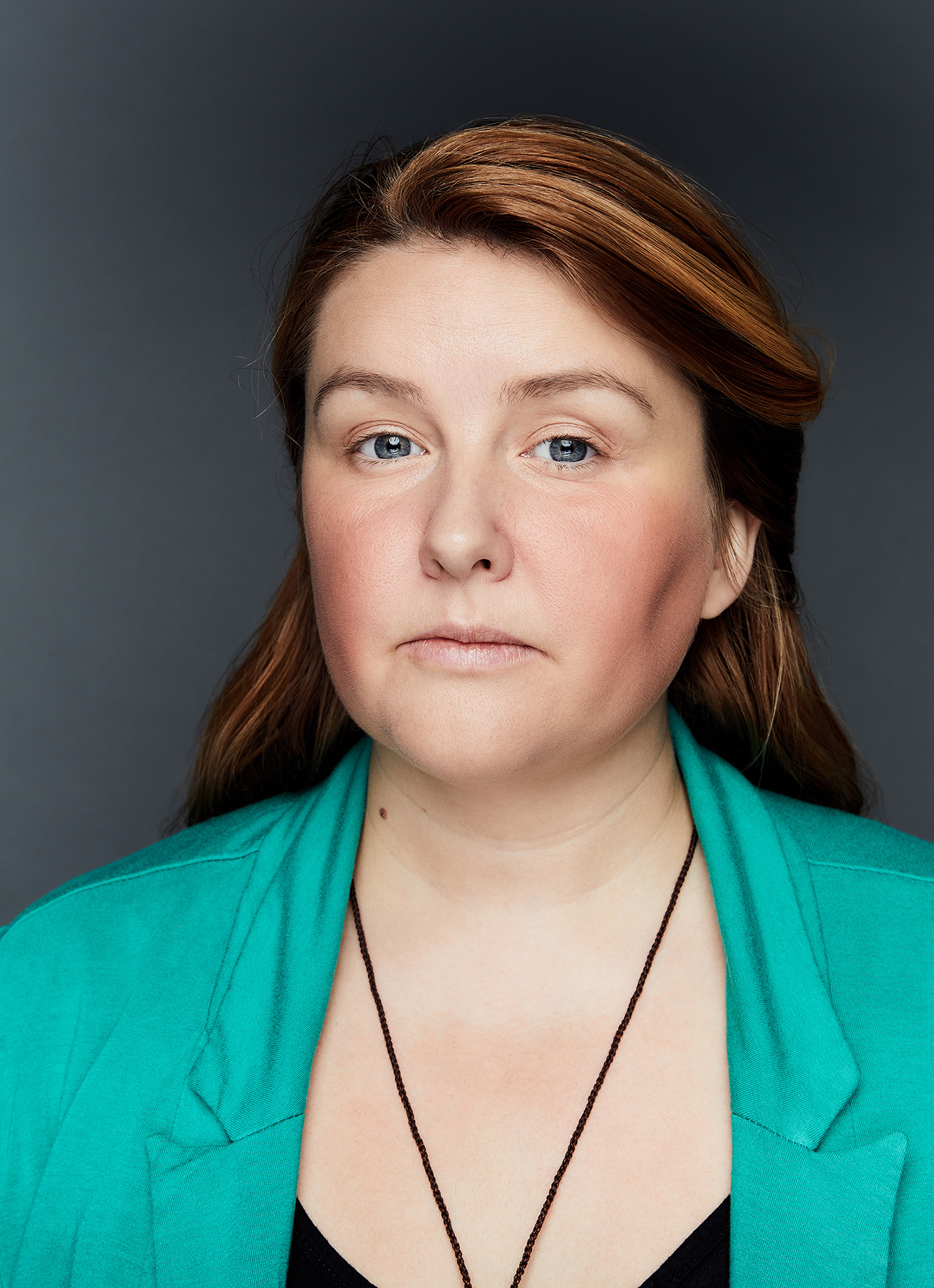
Emily Hunter (BA 2011 UTSC) is an environmental activist and storyteller. She is the director and producer of Activism 2.0, a short documentary, and author of the book The Next Eco-Warriors.
How do you get people to focus on important “truths,” such as climate change?
The narrative around this issue is “crisis,” which has mostly failed to move the public into action. For me, the most effective way to empower others to act is to tell a story about solutions – about the world we want and about the people creating that world.
What tactics do you use?
Every environmental organization I know starts with independent evidence to show that an injustice is happening. But simply sharing this truth isn’t enough anymore. It’s how you communicate which drives people to act – from online petitions to student strikes. This is the art of campaigning.
How do you counter narratives that obscure the truth?
One of our most dominant narratives tells us that happiness equals wealth. But this doesn’t serve us when it leads to damaging the environment beyond repair. I consider an activist to be a storyteller who disarms these destructive narratives. I try to show that we are not in competition with each other for the planet’s resources, and that we can live in a low-impact society that still meets our needs.
For me, the most effective way to empower others to act is to tell a story about the world we want and about the people creating that world
The Sports Doctor
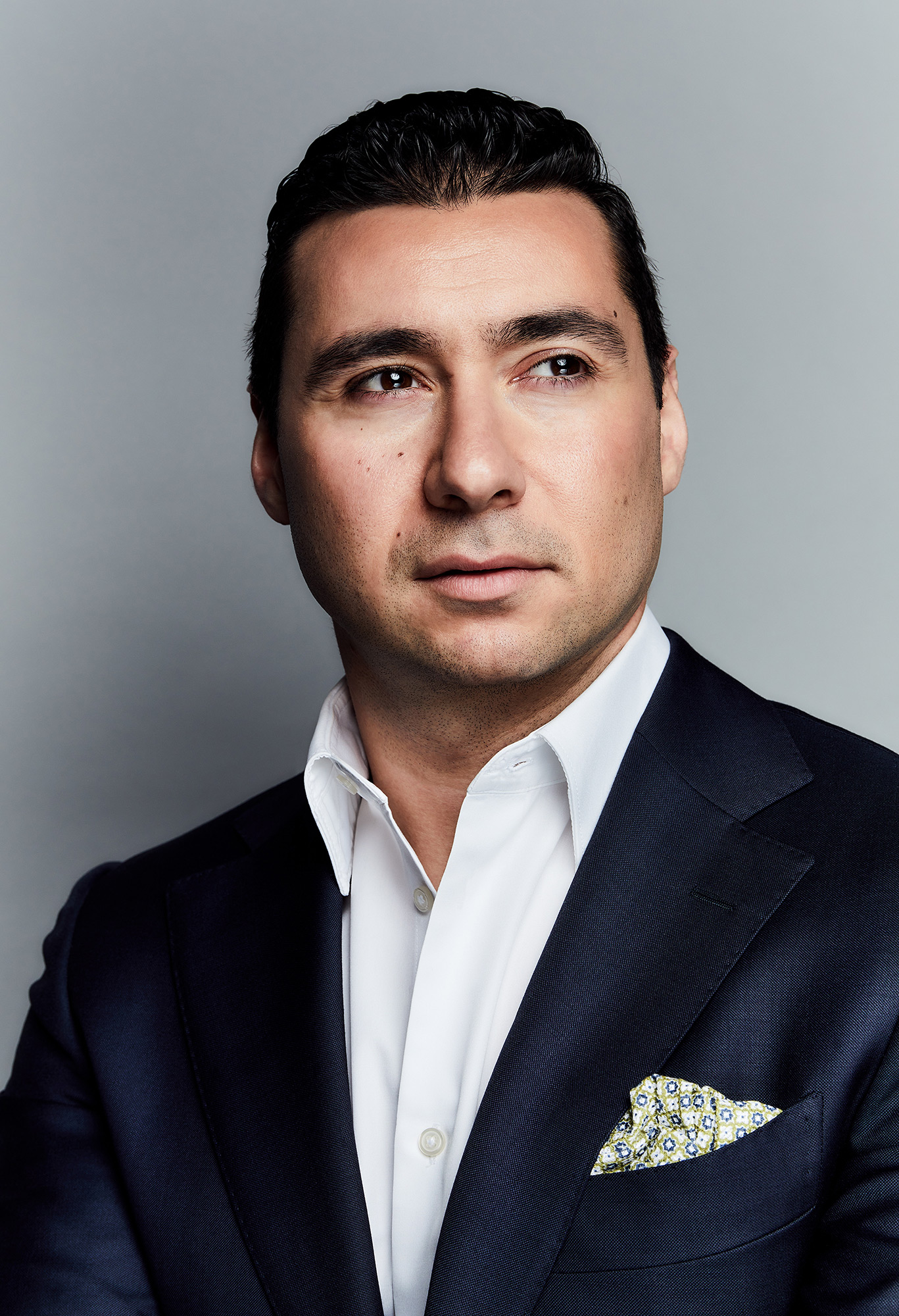
Dr. Riam Shammaa’s new book, Looks Can Kill: A Doctor’s Journey through Steroids, Addiction and Online Fitness Culture, reveals the ugly truths behind fake fitness.
When Dr. Riam Shammaa – a U of T lecturer and sports medicine physician – was a medical resident in Quebec, he began lifting weights at a local gym. He soon learned what his medical training had not taught him: many of the gym-goers were knee-deep in the use of steroids and other hormonal substances to boost muscle growth.
He realized that much of this cosmetic doping was tied to the desire to emulate the “fake fitness” stars portrayed on social media: looking fit was trumping being fit.
Shammaa reveals the dangerous truths about the fake-fitness industry in his new book, Looks Can Kill: A Doctor’s Journey through Steroids, Addiction and Online Fitness Culture. A few hallmarks of steroid use: Cardiac arrest, kidney failure and psychological issues, such as paranoia, rage and suicidal tendencies. “For that beautiful Instagram picture, there are six months of hormone and medication abuse, including insulin, thyroid hormones and steroids,” says Shammaa, who also did a fellowship in medicine at U of T.
For that beautiful Instagram picture, there are six months of hormone and medication abuse
His book includes medical guidelines for recognizing and treating cosmetic doping because, he says, it is vital that doctors – as well as parents, coaches and others – start connecting the dots before it is too late to save a life.
Shammaa also wants to put an end to the stigma surrounding steroid users. Like any addiction or body-image issue, this is a mental health concern, he says, and the people who are experiencing it are vulnerable: They do not want to admit weakness, when they are trying so desperately to appear strong.
The Scientist
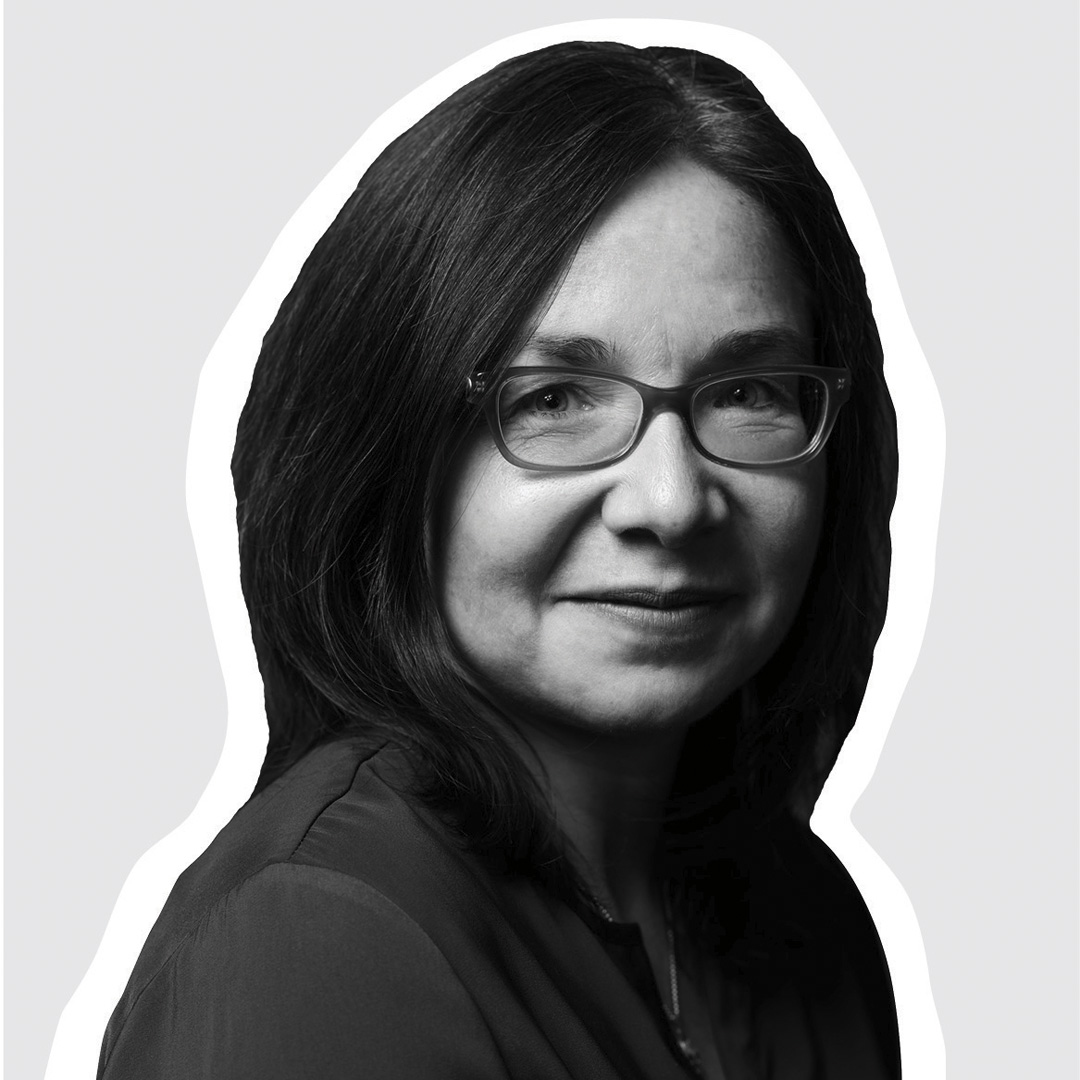
Climate scientist Katharine Hayhoe (BSc 1994 Victoria) is the director of the Climate Science Center at Texas Tech University. She was recently named one of the United Nations Champions of the Earth. One of the most frequent questions people ask her is “Is it too late to save the Earth?” Below, she answers.
“The answer is yes and no. It’s kind of like we’ve been smoking a pack of cigarettes every day for decades. We don’t have emphysema, we don’t have lung cancer and we’re not dead. But the time to stop is as soon as possible.
It’s the same with climate change. I study the difference between the future where we continue to depend on fossil fuels versus the future where we transition to clean energy. And I can tell you there is a night- and-day difference. There is the future where there are significant impacts, but we can adapt to them, prepare for them and build resilience so that when they come we’re ready. Or there is the future where the changes overwhelm us far beyond our capacity to adapt.
So in that sense, it is very much not too late. But if we decide it’s too late and we do nothing, we will ensure our failure. The choices we make now, and in the next few years, do matter.”
The Journalist
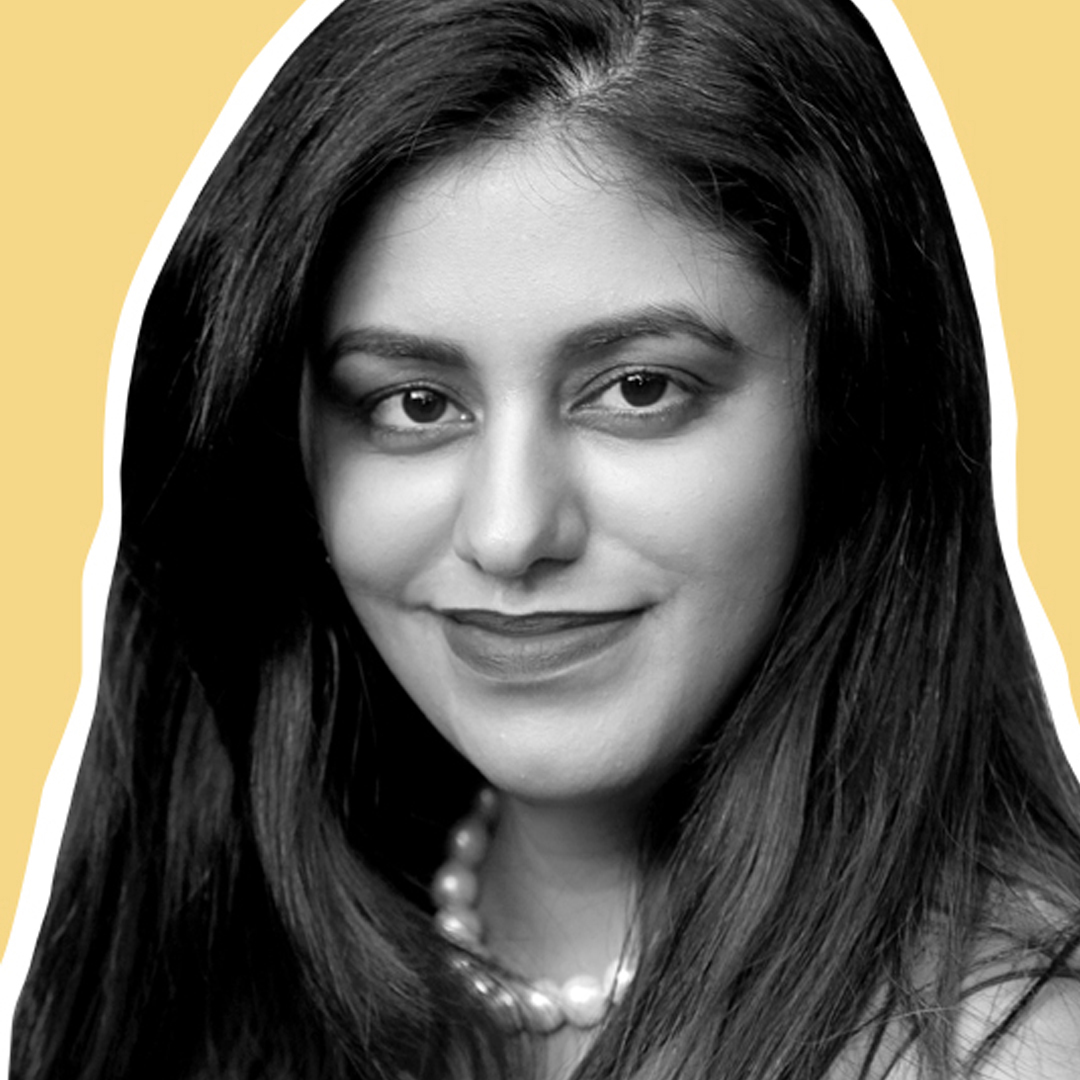
Habiba Nosheen (BA 2005 New College) is an Emmy Award–winning investigative journalist whose production company, Akelo Media, specializes in documentary films for a global audience. In 2013, she directed the film Outlawed in Pakistan, about a Pakistani teenager’s attempt to bring to justice the four men she accused of raping her.
“It’s a privilege to be able to tell stories about people, but it comes with a responsibility to be accurate. What helps me sleep at night is knowing I’ve vetted a story with all of the evidence available to me.
We need investigative journalism to get to the truth. But to be meaningful, and to resonate with an audience, investigative journalism needs to do more than just find out what happened. It needs to hold people in power to account.
In a ‘post-truth’ world, journalism grounds us. It reminds us that there actually is such a thing as an objective truth.”





No Responses to “ Taking a Stand ”
Excellent piece in its content and diversity. Well done.
So very inspiring. Fascinating reading.
Thank you for this publication. It was very uplifting and a testament to the essential need for truth over power.
Every story here had an impact on me. It is heartening that good, caring people with passion and compassion are sharing their voices and leadership.
You never publish any criticisms within your comments section and for that reason alone you aren't to be taken seriously.
I enjoyed seeing the faces of people the university helped to inspire. I too was inspired to work in areas that had social good for Canadians. I worked as a psychiatrist and team leader in a university-led family court clinic. I also led the mental health program at Sioux Lookout aboriginal hospital for decades, chaired and helped found The Canadian Native Mental Health Association, developed a maximum security mental hospital for mentally ill and dangerous youth. My programs have received two American Psychiatric Association Gold Awards for programme excellence and innovation. I received wonderful support from U of T during my training.
For many people, it does indeed take courage to speak up for what they believe. For speaking out, many people have been assaulted, beaten, tortured, exiled and made refugees, or even put to death.
I am a Canadian Army veteran. I have seen many acts of true and authentic courage in which speaking the truth brought violent persecution. My father-in-law bears the scars of when he was tortured by the police of the Islamic Republic of Iran -- a country where, to this very day, conversion to Christianity is a crime punishable by death. My father-in-law is a real hero, who showed true courage in the face of violent persecution.
The University of Toronto has many alumni who have actually showed real courage in the face of violence and oppression. This article should have been about them.
A good representation of some of the many U of T alumni making this country a better place. An excellent piece, in a consistently high calibre publication.
I appreciate the diversity of voices, cultures and issues represented in this article. It reminds me that as a social worker and psychotherapist providing culturally sensitive psychotherapy, I am not just providing a safe space for people to share their story but a vehicle where personal truths can be discovered, reconciled and honoured.
Well done! One of the most self-contradictory statements is the claim, "There's no such thing as truth." Ironically, the person making it expects to be believed and credited with saying what is true!
Similarly, claiming there is no such thing as "absolute truth" collapses on itself when the right questions are asked, such as, "What does that say about what you just stated?"
It is good to see the term "objective truth" being used once again. Sadly, the distinction between facts, interpretation, truth and opinion often is missing. An interesting exercise is giving priority to each of those words by putting the least important first and the most important last, an exercise not done here but worth attempting.
And little children have a great desire for truth and honesty. They take no delight in being told they can have an ice cream cone only to have that denied. Yet they do not have to be taught to be dishonest with their parents. It seems to come very naturally to them - and to us!
At the same time, we are told, "... unless you change and become like little children, you will never enter the kingdom of heaven" (Mt. 18:3); and the same Person said, "... you will know the truth, and the truth will set you free" (Jn. 8:32). Well worth thinking about!
As a Registered Psychotherapist and Certified Spiritual Director, I find adults are deeply hurt because the truth is missing in some way from their relationship with another person or group. As they learn to stand up for the truth, others may learn to accept the truth of what they are saying, or turn against them because of their honesty.
Great discernment, wisdom and courage are needed, along with love rooted and grounded in truth. That includes love even for our enemies - not natural to us, yet necessary. May we grow in these qualities.
Fred Kan (BASc 1964, JD 1967) writes:
I think it is important to speak up for the truth. But it is equally important not to create and spread falsehood or fake news. We must understand and assess the benefits and damages offered or incurred by social media.
Wayne Mackenzie writes:
You mean, all the truth that is politically correct.
George Heighington (BA 1972 UTSC) writes:
In 1980, I was raising a family in the Malvern area of Scarborough when we discovered that our property was contaminated by radioactive waste.
I helped bring together 53 culturally diverse, lower socio-economic families in the area who were affected by this. UTSC history professor John Moir was very helpful, though the university itself didn't want to be involved.
We succeeded in reducing our property taxes at the Ontario Municipal Board and writing case law in Canada as it applies to waste on (or in) land. After 1990, banks would not mortgage a property until it had been checked for waste. Land could not be developed until checked for waste. If waste was found, it had to be cleaned up. After 1990 Atomic Energy Canada began to clean up historic waste sites.
Matthew Jocelyn writes:
It’s interesting to note that in all the images of women, they are looking straight at us. All the men are looking elsewhere.
Gwynneth Evans (BA 1962) writes:
Thank you for sticking to your decision to have a theme issue on "speaking the truth" -- despite the changes in our world in the last few months. This issue has brought an authentic and dynamic sense of the breadth and depth of teaching and scholarly activities at the University of Toronto.
While some of us now have more time in self-isolation, we need stimulation and a change of channel from the current preoccupation with the pandemic. This issue provided this through various perspectives on searching and speaking the truth. I was pleased to read about the DCB, which exposed the challenges of a multi-year, multi-faceted, bilingual publishing project.
There are many sources (some reliable) to learn about our collective COVID-19 experiences and the resulting needs of our societies. I hope universities will continue to express the distinctive characteristics of multiple areas of knowledge in the arts and social sciences, as well as bringing us news of scientific discoveries and their impacts.